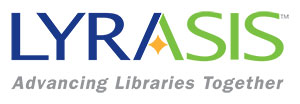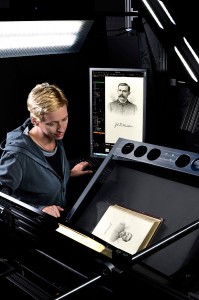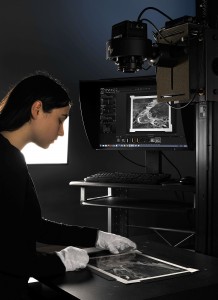Highest-Quality Digitization Services at Affordable Prices — Creekside Digital and the LYRASIS Digitization Collaborative
LYRASIS is the nation’s largest regional membership organization for libraries and other cultural heritage institutions. For over seven years, Creekside Digital has offered our true preservation-class digitization services to libraries and other cultural heritage institutions across the United States via the LYRASIS Digitization Collaborative (previously the LYRASIS Mass Digitization Collaborative), a program which offers high-quality digitization services to LYRASIS members at reasonable prices. Creekside Digital is pleased to offer the following still image digitization services to LYRASIS Digitization Collaborative participants:
- Microfilm and Microfiche Scanning
- Book Scanning
- Newspaper Digitization
- Digitization of Photographic Materials
- Scanning of Flat Oversized Materials

Interested in participating? Please contact LYRASIS for pricing and program eligibility.
Microfilm and Microfiche Scanning
In 2010, Creekside Digital began its partnership with LYRASIS by providing reasonably-priced standards-compliant microfilm digitization to program participants. In the years since then, we have digitized many thousands of rolls of microfilm and successfully delivered millions of archival TIFFs and many terabytes of image data to LYRASIS members from this format. Microfilm projects digitized by Creekside Digital through the LYRASIS Digitzation Collaborative deliver for each frame scanned:
- 300-400dpi true optical resolution 8-bit uncompressed TIFF master file, cropped and deskewed per the National Digital Newspaper Program imaging specifications
- JPEG2000 lossy derivative
- Searchable PDF derivative (“reader” files downscaled to 150dpi at Medium quality)
- “Sidecar” plain text versions of each image’s OCR data (required for loading images into searchable databases or content management systems such as CONTENTdm).
Microfiche will be scanned at 300dpi true optical resolution to the file types listed above. Step & repeat, jacketed fiche, and COM formats are all eligible for conversion, up to a maximum of 48x reduction.
All microform digitized by Creekside Digital for the LYRASIS Digitization Collaborative is scanned using nextScan production-class microfilm scanners in order to achieve the highest technical image quality from microfilm available today, at any price. Various options are available on microfilm and microfiche projects, including 2-up splitting, organization of output images by book / issue / volume, and metadata such as METS / ALTO structural XML.
Book Scanning
While millions of pages of bound books have been successfully digitized through the LYRASIS Digitization Collaborative by Internet Archive, not every collection is a good fit for their service. Copyright status, condition, or size sometimes prompt LYRASIS members to look for additional conversion options. Creekside Digital’s customers own their book scans, and the files do not need to be made freely available via archive.org or any other website. We also retain all pages edges during our standards-compliant book digitization process, and can handle fragile works as well as bound volumes up to 17″ x 25″ in size with bindings up to 6″ thick.
For each bound book page and foldout digitized by Creekside Digital through the LYRASIS Digitzation Collaborative, we deliver:
- 300-400dpi true optical resolution 24-bit full color uncompressed TIFF master file, cropped and deskewed while retaining all page edges per the FADGI guidelines
- JPEG2000 lossy derivative
- Searchable PDF derivative (“reader” files downscaled to 150dpi at Medium quality)
- “Sidecar” plain text versions of each image’s OCR data (required for loading images into searchable databases or content management systems such as CONTENTdm).
Full-color TIFFs will be converted to the Adobe 1998 RGB ICC profile upon output. PDF files created from bound books will typically be multipage PDFs (one per volume) unless single-page PDF files or some other type of segmentation are requested as part of the project order. Full METS / ALTO structural XML in lieu of OCR text file is available as an option.
Newspaper Digitization
In addition to scanning newspapers from microfilm, Creekside Digital is pleased to digitize original, print newspapers for LYRASIS Digitization Collaborative participants. We are able to digitize loose or disbound newspapers as well as print newspapers in bound volumes where disbinding is not possible or desired (though we do recommend that bound newspaper volumes are disbound prior to digitization whenever possible, which we can do for you). For each print newspaper page we digitize, Creekside Digital delivers:
- 400dpi true optical resolution (8-bit grayscale for B & W pages and 24-bit full-color for all pages with color content) uncompressed TIFF master file, cropped and deskewed while retaining all page edges per the FADGI guidelines
- JPEG2000 lossy derivative
- Searchable PDF derivative (“reader” files downscaled to 150dpi at Medium quality)
- “Sidecar” plain text versions of each image’s OCR data (required for loading images into searchable databases or content management systems such as CONTENTdm).
Creekside Digital is pleased to digitize all newspaper project pages in full-color as a no-charge option. By default, newspaper scans will be foldered per issue. PDF files created from newspapers will typically be multipage PDFs unless single-page PDF files or some other type of segmentation are requested. METS / ALTO structural XML is available in lieu of OCR text file as an option.
Digitization of Photographic Materials
Creekside Digital converts both reflective photographic materials (prints) as well transmissive photographic materials (such as slides, film, transparencies, and negatives) for the LYRASIS Digitization Collaborative. All photographic materials converted by Creekside Digital for the LYRASIS Digitization Collaborative are digitized by trained photographers using Phase One 80 megapixel digital backs and other equipment specifically designed for standards-compliant, high-quality conversion of fragile cultural heritage materials.
Reflective Photographic Materials
Prints and other reflective photographic materials digitized by Creekside Digital through the LYRASIS Digitzation Collaborative will deliver for each image scanned:
- 400dpi true optical resolution uncompressed TIFF master file in 24-bit full-color (8-bit grayscale available upon request)
- JPEG2000 lossy derivative
Full-color TIFFs will be converted to the Adobe 1998 RGB ICC profile upon output. Images will be cropped to the edge of the print (retaining the visible edge of the paper) and deskewed. By default, only the front of each print will be scanned. Optionally, the back of each photo can also be digitized upon request.
Transmissive Photographic Materials
Slides, transparencies, strips, and other types of transmissive photographic materials can be digitized by Creekside Digital via the LYRASIS Digitization Collaborative. Rather than scanning these materials with slow flatbeds using cheap plastic holders or trusting them to potentially risky “prosumer” film scanning devices, Creekside Digital’s photographers manually digitize these materials on a light box using Phase One 80 megapixel digital backs, resulting in speed and image quality unattainable with any other method of conversion. For example, we can rapidly digitize 35mm mounted slides at a full 4,000dpi true optical resolution and in 48-bit full-color. For each frame we image for LYRASIS Digitization Collaborative participants, Creekside Digital delivers:
- 2,000 – 4,000dpi true optical resolution uncompressed TIFF master file in 48-bit full-color (resolution dependent on frame size / 8-bit grayscale available upon request)
- JPEG2000 lossy derivative
Full-color TIFFs will be converted to the Adobe 1998 RGB ICC profile upon output. Images will be cropped to the edge of each frame (and up to 1/4″ over) and deskewed. By default, no automated dust / scratch removal algorithms will be used. For negative film, Creekside Digital will invert the polarity of each capture to generate a positive image. By default, we also adjust settings such as levels and curves yield an aesthetically pleasing positive, as would be done during a traditional analog printing process. Polarity inversion and related processing can be omitted for LYRASIS Digitization Collaborative participants who prefer as “as-shot” negative master files.
Scanning of Flat Oversized Materials
Creekside Digital also digitizes large two-dimension objects for the LYRASIS Digitization Collaborative such as maps, plats, and engineering drawings. We can handle items which have been rolled or folded, have fragile edges, etc. For each item, Creekside Digital delivers:
- 300dpi true optical resolution uncompressed TIFF master file in 48-bit full-color
- JPEG2000 lossy derivative
- Searchable PDF derivative (“reader” files downscaled to 150dpi at Medium quality) for items having textual content
Full-color TIFFs will be converted to the Adobe 1998 RGB ICC profile upon output. Images will be cropped to the edge of the paper (retaining the visible edge of the paper and up to 1/4″ of overscan) and deskewed.
Webinars
From time to time, Creekside Digital personnel participate in LYRASIS webinars related to the LYRASIS Digitization Collaborative. Many prospective program participants find these webinars to be helpful illustrations of what to expect when sending a project through the program. Additionally, past participants often present as well and share their experiences. The schedule of all LYRASIS Digital classes and webinars, including those related to the LYRASIS Digitization Collaborative, is available here.
Contact
For more information regarding any of Creekside Digital’s preservation-class digitization services available through the LYRASIS Digitization Collaborative, including pricing and eligibility details, please contact Hannah Rosen, LYRASIS Licensed Services Coordinator, at (800) 999-8558 x2918, or email her at hannah.rosen@lyrasis.org.


